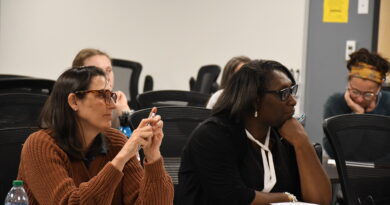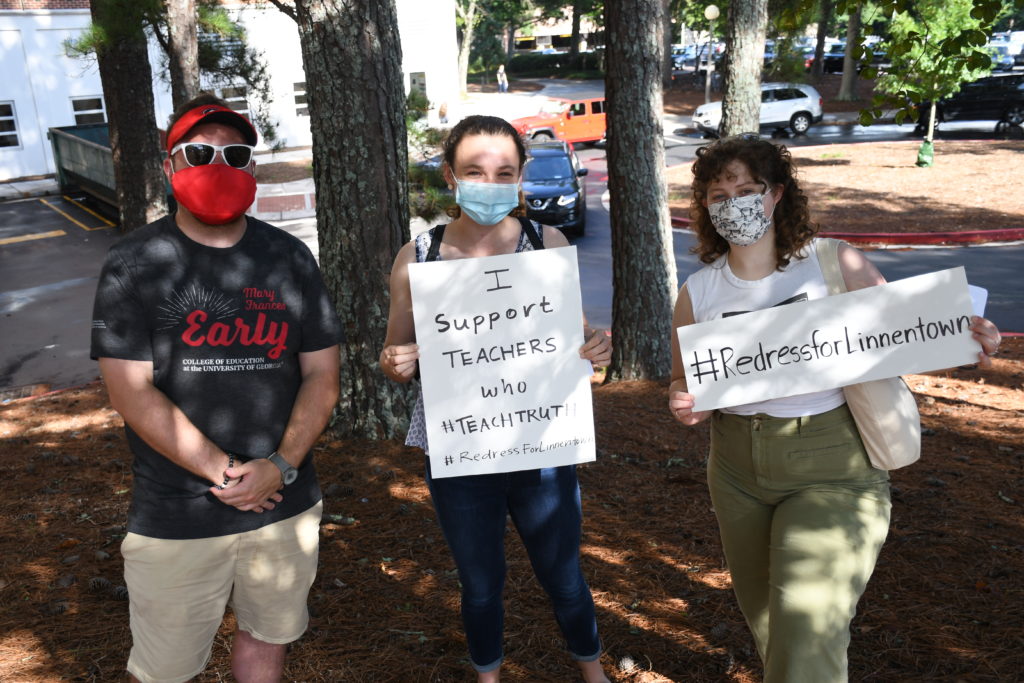
Local educators protest anti-critical race theory resolution
Gathering where Linnentown once stood nearly 60 years ago, on Aug. 27, Athens-area educators and local civil rights leaders rallied near Brumby Hall at the University of Georgia to protest a recent Georgia Board of Education resolution condemning discussion in classrooms regarding systemic racism and its role in past and present-day America. These educators pledged to “Teach the Truth” at a rally organized by Amelia Wheeler, who taught economics at Cedar Shoals High School before entering a doctoral program at UGA.
“I originally wanted to be a historian, and when I got to my undergraduate degree I realized, oh my gosh, the history I learned in high school is not like the history that real historians study,” Wheeler said. “There were women missing and there were people of color missing and, the United States was always the good guy. It was very clear to me that the story that I have been taught in school wasn’t the truth, and it made me really frustrated,” said Wheeler.
Wheeler immediately viewed The Georgia Department of Education’s resolution with unease and decided to organize the “Pledge to Teach The Truth” rally where educators and community members discussed topics including Linnetown’s history and what the policy means for classrooms.
Under this new policy, discussion of local history like UGA’s erasure of Linnentown could be stifled or censored. Educators in attendance worry that the resolution condemning conversations in the classroom about systemic racism and injustice could mean that teachers will face backlash for teaching about stories such as Linnentown and its mistreatment by UGA, burying the topic yet again.
Speakers such as social studies professor and curriculum theorist Dr. Jim Garrett, Cedar Shoals American literature teacher Brent Andrews, Athens Anti-Discrimination Movement founder Mokah-Jasmine Johnson and Athens-Clarke County Commissioner Jesse Houle (District 6) spoke at the event to share their perspectives on the importance of incorporating the history of race relations into curricula so that civil rights movements such as The Linnentown Project are not kept in the shadows.
“When teachers don’t get to teach the truth, they don’t get to teach about this local civil rights history,” Wheeler said.
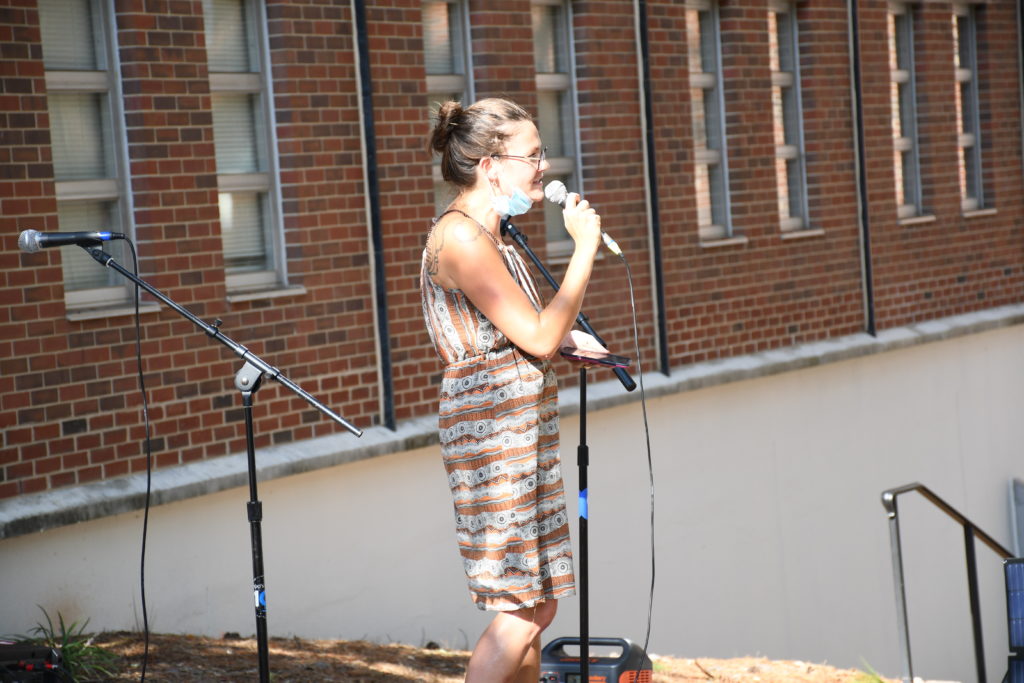
The concepts condemned in this resolution, such as systemic racism and the guilt placed on certain individuals based on their race, are core concepts discussed in Critical Race Theory. Critical Race Theory, or CRT, places emphasis that racism is no fault of one individual, but the fault of the flawed system we belong to that was built on racism. Although CRT is in line with the education department’s belief that no individual should feel guilt on the basis of their race, Georgia Governor Brian Kemp also came out with a statement in support of the board’s decision regarding CRT as ‘dangerous, anti-American and having no place in Georgia classrooms.’
Although Wheeler and many others fear the possibility that this resolution could become law, Dr. Garrett, says it’s important to remember that this resolution is just that: a resolution.
“That was my first reaction: I want to make sure as many people know that this doesn’t have any binding power or force to it as possible,” he said.
Dr. Garrett is building a curriculum that aims to center the experiences of Black youth. Despite the fact that this curriculum could directly contradict the state BOE, Dr. Garrett says he’s not concerned.
“My sense is that nobody at the university has said, ‘Don’t do this, you can’t talk about critical race theory.’ No one in Clarke County schools, that I know of, has been told that either, so I’m not worried,” he says. Dr. Garrett’s curriculum will also serve to educate students about the site on which the rally took place.
Linnentown, another main focus of the rally, is a piece of Athens history that was buried for decades until Hattie Whitehead Thomas, a former resident of Linnentown, demanded that the story of her childhood home and neighborhood be heard. Thomas has fought for Linnentown since the beginning of its demolition and was involved in civil rights movements to fight for a future of equality.
“I was involved in civil rights at the time. Bus to jail, spit on, (protesting at) lunch counters, the whole nine yards, for you all out there that are younger than me,” Thomas said.
The rally highlighted the possibility that a ban on CRT in classrooms could mean stories like Linnentown’s could and civil rights movements such as those Thomas participated in could be misconstrued or completely ignored once again.
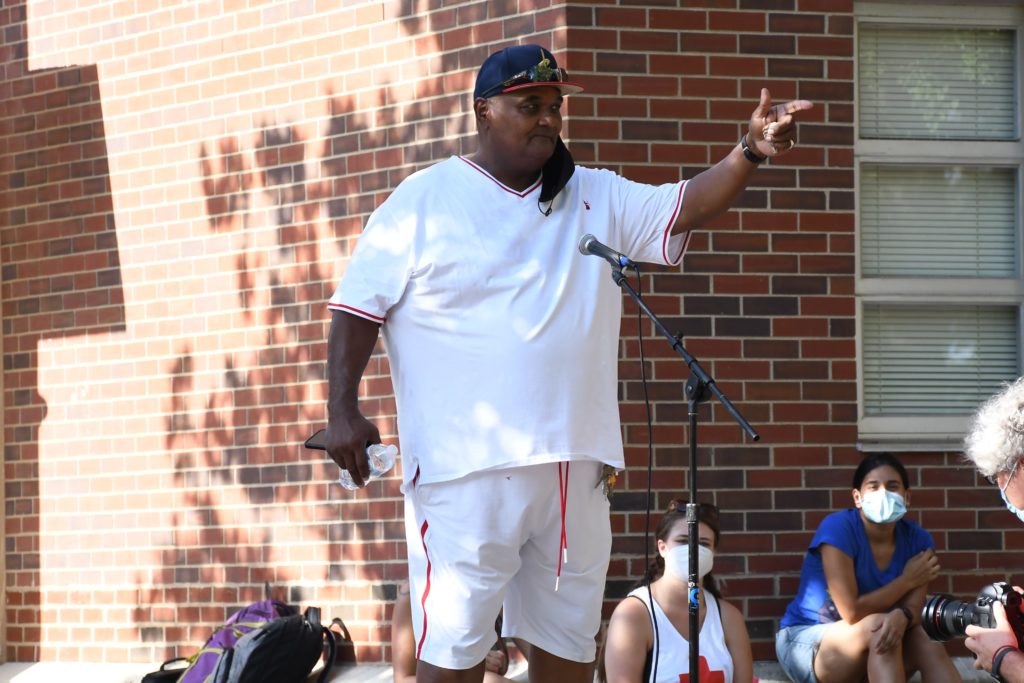
Linnentown was a Black community in Athens before UGA began an urban renewal project to build what is now Brumby Hall on Linnentown’s land. The demolition of Linnentown happened without its residents’ consent, and they were given no reparations until now, nearly 60 years later. Until the Linnentown Project was born, Linnentown’s history was erased and UGA refused to acknowledge the damage it had done to the community. Thomas and Bobby Crook, Linnentown descendant and activist, spoke at the rally about being displaced from their community as UGA began to demolish it.
“It is a disheartening thing to know that your neighborhood was just taken from you and you get nothing for it,” said Crook.
Recognition by UGA of the harm it caused to Linnentown’s former residents and its mistreatment by UGA is not the group’s only demand. The Linentown Project aims to spread the truth about Linnentown and receive redress for UGA’s abuse toward the land and its residents. These five descendants successfully pushed the government of Athens-Clarke County to adopt “The Linnentown Resolution for Recognition and Redress,” which seeks to provide reparations to the Linnentown residents, although UGA has yet to agree to do the same. This act is the first act of reparations in Georgia.
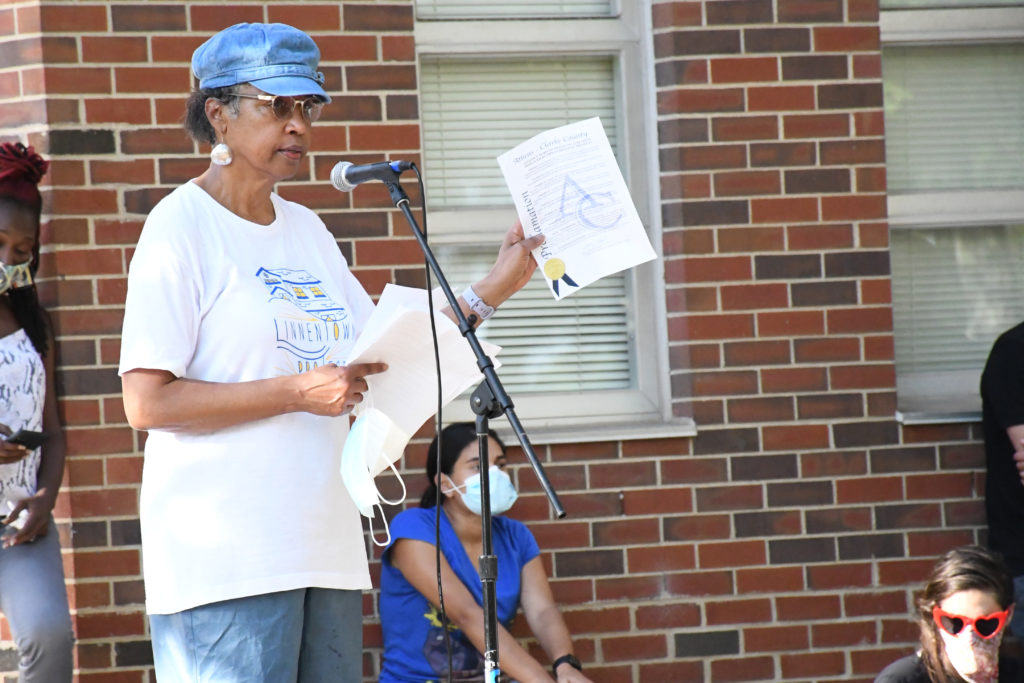
Despite concern that the education of Linnentown and its history in the classroom could be targeted by the Georgia Board of Education’s resolution, there are teachers making sure this outcome will not happen.
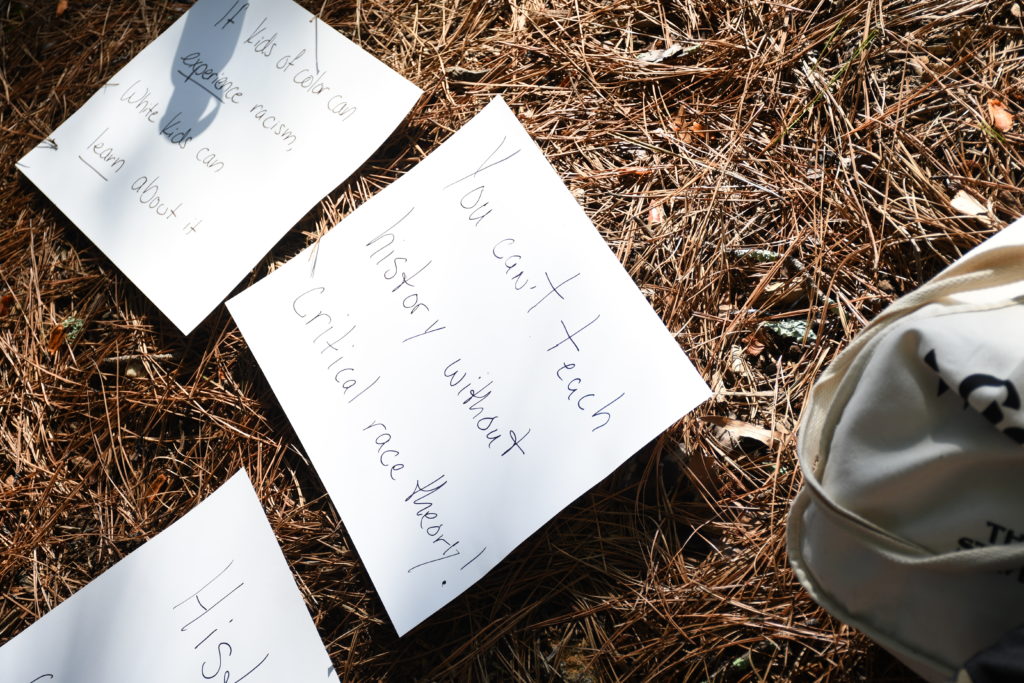
“I’ve been trying to keep up with Linnentown. I’ve put it on assignment sheets for when kids are writing their own piece of rhetoric for a project, they could have chosen Linnentown as the thing that they focused on,” Andrews said. Like Garrett, Andrews wants his curriculum and classroom to be a place where his students and their experiences are the focus.
“Every time I present a piece of literature, I also try to give students a chance to talk about their own experience, and I think that’s what the people who crafted this (resolution) are more concerned about,” Andrews said. “I think they’re fine with teaching history, but I think they don’t want us to talk about what systemic racism looks like now.”



